Pioneering French NGO Vautours en Baronnies is working to restore populations of all four European vulture species in the southwestern French Alps. Membership of the European Rewilding Network will enable the team to share knowledge, enhancing the comeback of these magnificent, ecologically important birds across the continent.
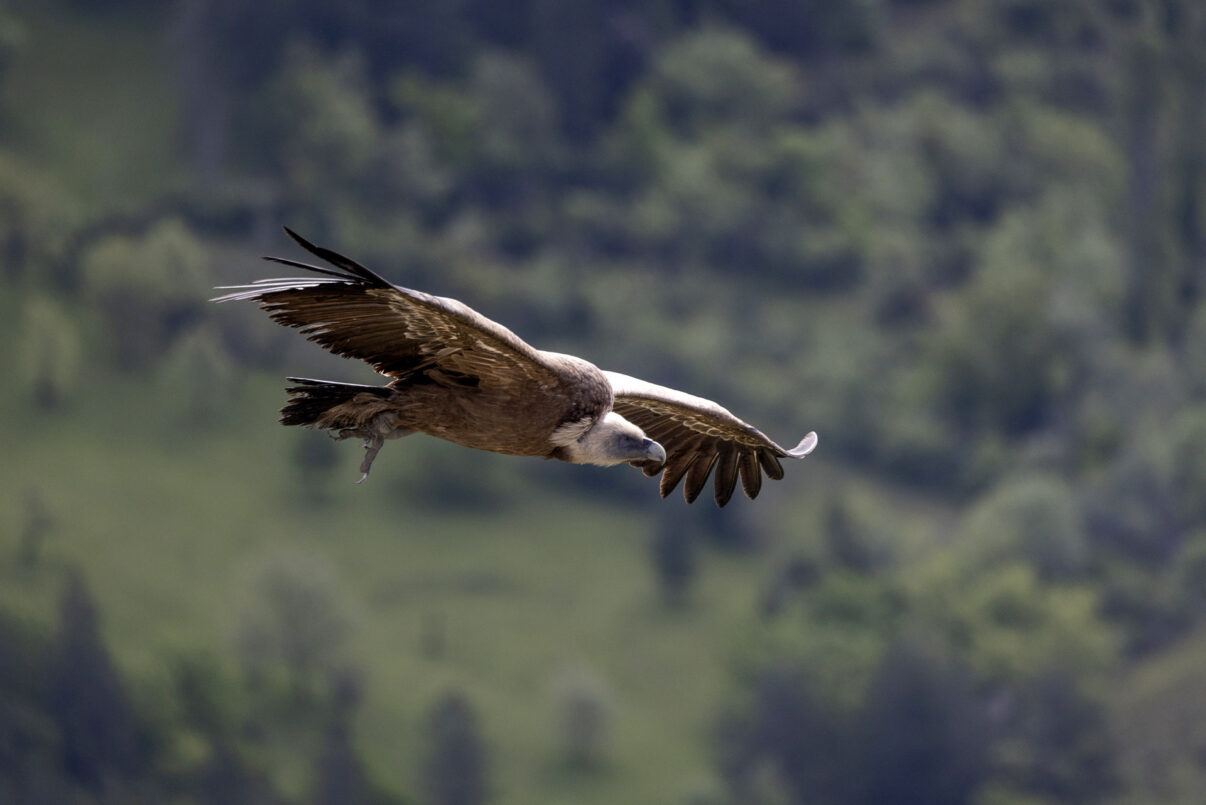
Critical comeback
Vultures are truly amazing. There is nothing quite like the sight of a squadron of these majestic birds, their finger-like primary feathers clawing the air as they climb higher and higher on the day’s thermals. As the continent’s most well-known scavengers, Europe’s four vulture species (griffon, cinereous, Egyptian and bearded) play a critical role maintaining the health and balance of wild nature, rapidly cleaning up and recycling the bodies of dead animals as part of the so-called “circle of life“.
Despite their iconic status, and the benefits they offer nature and people, vultures haven’t always been so appreciated. By the middle of the twentieth century, a range of factors – including the disappearance of food, habitat loss, and poisoning – had driven them to extinction or near extinction in many European countries. Since then, however, the tide has slowly turned, with wide-ranging conservation efforts enabling the ongoing return of vultures in many areas. Rewilding Europe is playing a key role, supporting vulture comeback in many of its own landscapes.
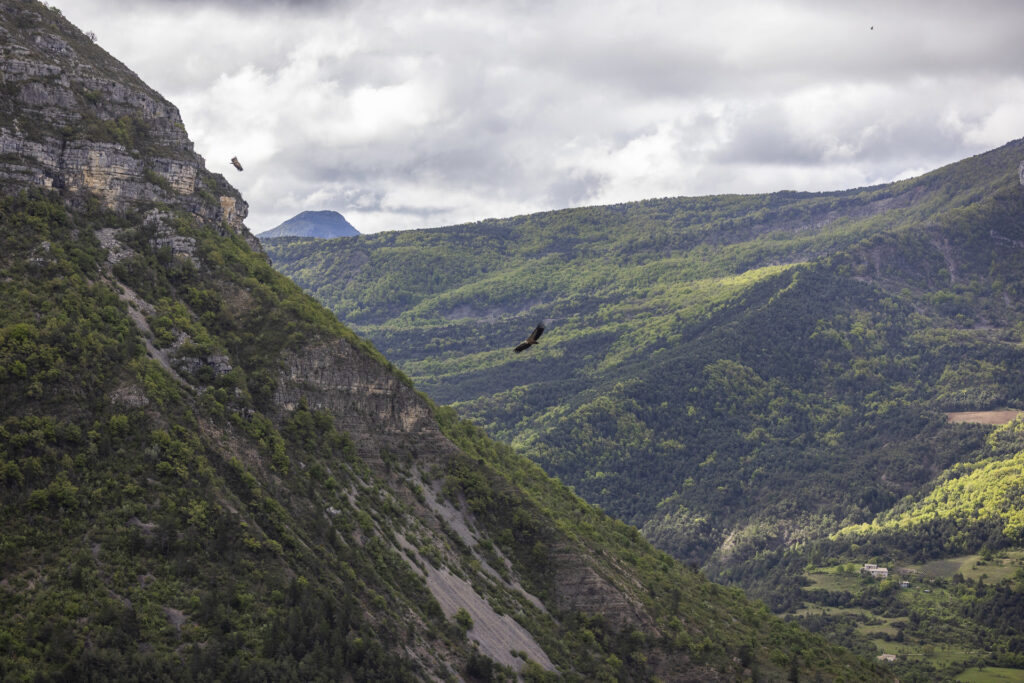
Pioneering vulture recovery in France
Another initiative playing a pivotal role in the recovery of European vultures is Vautours en Baronnies. Since 1992, the French NGO has been engaged in groundbreaking reintroduction efforts to support vulture comeback in Baronnies Regional Natural Park – an area of prime vulture habitat in the Dauphiné Alps in southeast France.
These efforts have seen thriving colonies of griffon and cinereous vultures established in the park, leading to the natural return of the Egyptian vulture – Europe’s smallest vulture species. Ongoing bearded vulture reintroductions are also working towards the creation of a new breeding population of the species in the local area. In May, Rewilding Europe’s European Wildlife Comeback Fund awarded a 60,000-euro grant to Vautours en Baronnies to help finance the release of up to six bearded vultures in the Baronnies through till 2025.
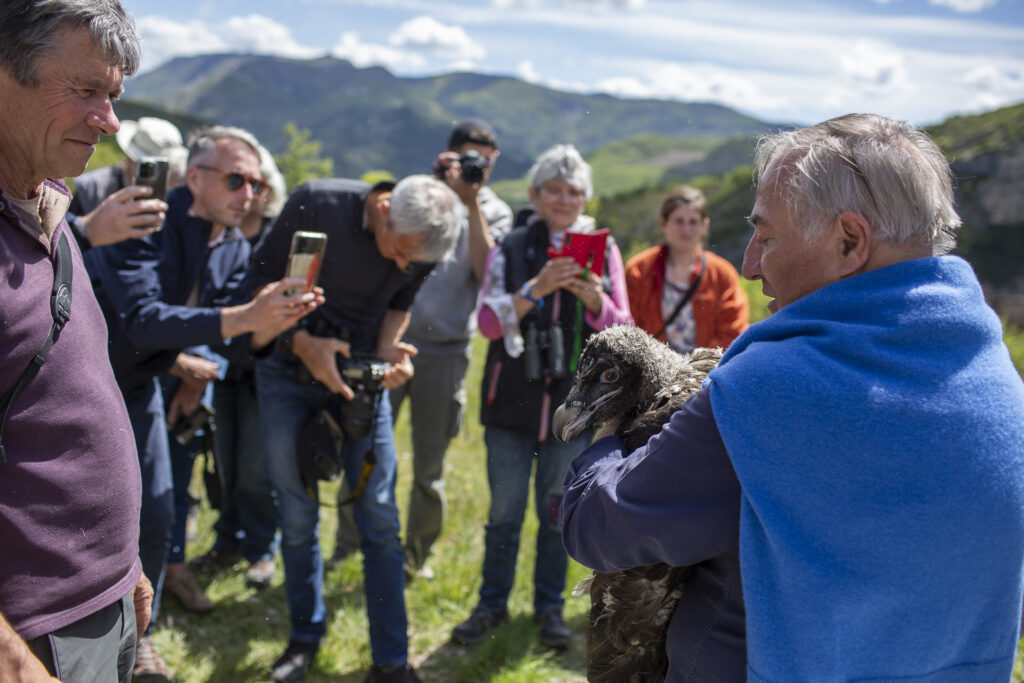
Taking vulture reintroduction efforts to the next level
Vautours en Baronnies has just joined Rewilding Europe’s European Rewilding Network as its 94th member, with network membership distributed across 29 European countries. With other members involved in the recovery of vulture populations across Europe, the inclusion of the French initiative will strengthen the network’s collective expertise and help the Vautours en Baronnies team in their own rewilding efforts.
“We’re thrilled to be part of the network,” says Julien Traversier, the bearded vulture programme coordinator at Vautours en Baronnies. “We bring three decades of experience in vulture reintroductions, which we are eager to share with all those vulture rewilders who share our goal of restoring the circle of life across European landscapes.”
Having reintroduced three vulture species, the Vautours en Baronnies team have hugely valuable practical know-how. This encompasses the well-established “hacking” method of releasing captive-bred vultures into the wild, which increases the chances that the birds will select their release site as the place to breed.
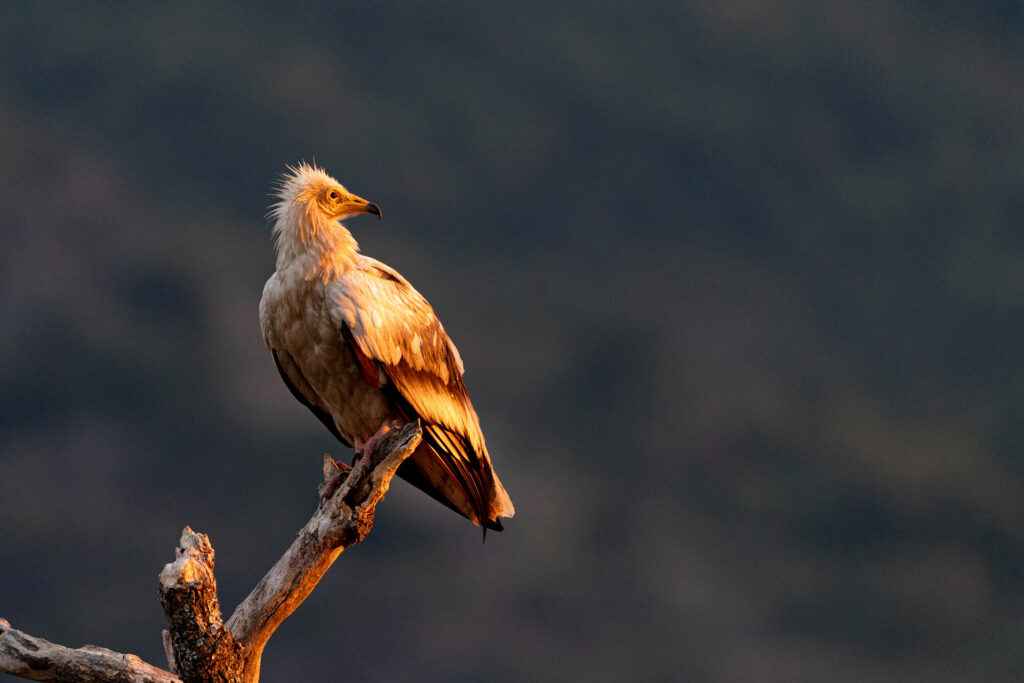
Huge economic boost
Today, for the first time in over a century, all four European vulture species can be seen soaring effortlessly through the skies above the Baronnies Regional Natural Park. The park is just one of a handful of places in Europe where this spectacle can be witnessed, drawing vulture lovers and wildlife enthusiasts from across France and farther afield.
In 2018, a study was carried out by the French Ministry of Ecology, in partnership with two natural parks, to assess the economic impact of vulture reintroduction in Baronnies Regional Natural Park and the Vercors Regional Natural Park, located a short distance to the north. Counters were set up at two villages – one in each park – to measure the number of people coming to see vultures. The findings were hugely impressive.
“We found that at just these two sites, more than 40,000 people were coming annually to see the birds, injecting an estimated total of 1 to 1.4 million euros into local economies,” says Gilles Rayé, who coordinated and co-authored the study for the Ministry of Ecology, and is now president of Rewilding France. “In Rémuzat – a village of only 300 inhabitants where Vautours en Baronnies is based – more than 20,000 people were visiting annually.
“Twenty years ago, just finding somewhere to spend the night in Rémuzat was a real challenge. Today, there’s a wide range of bars, restaurants, and self-catering cottages. This spectacular nature-based tourism growth, which is continuing, is all down to vulture comeback.”
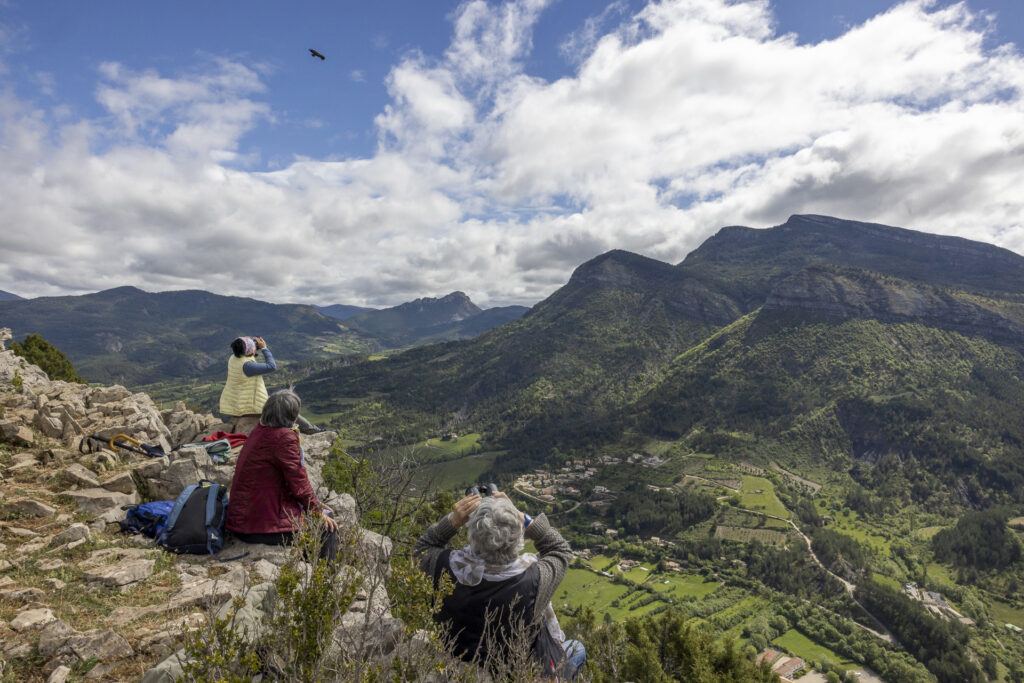
Feeding stations: a win-win for farmers and vultures
In 1993, in collaboration with local veterinary services, Vautours en Baronnies began collecting the carcasses of sheep and goats from local farmers within a 20-kilometre radius of Rémuzat. These were then provided to vultures through feeding stations. Since 2008, the NGO has helped a number of farmers establish such stations on their own land, in accordance with sanitary regulations.
This system of feeding stations is a win-win for both farmers and vultures. It saves farmers time and money, as they don’t have to pay for carcasses to be collected. Since 2018, they have also been eligible for financial support from the Baronnies Regional Natural Park to set up the stations. It also means carcasses are disposed of quickly, minimising the risk of disease.
In return, vultures in and around the park have access to a regular supply of food. The network of stations enables the birds to expand their home range and encourages them to look for carcasses across a wider area, which is more aligned with their natural foraging behaviour. In an ideal world, vultures across Europe would feed exclusively on the carcasses of wild animals. However, a decline in wildlife populations means livestock carcasses are often a critical source of food. This is the case in the Dauphiné Alps, where domesticated animals such as sheep far outnumber wild herbivores such as deer and chamois, although herbivore numbers are gradually increasing of their own accord.
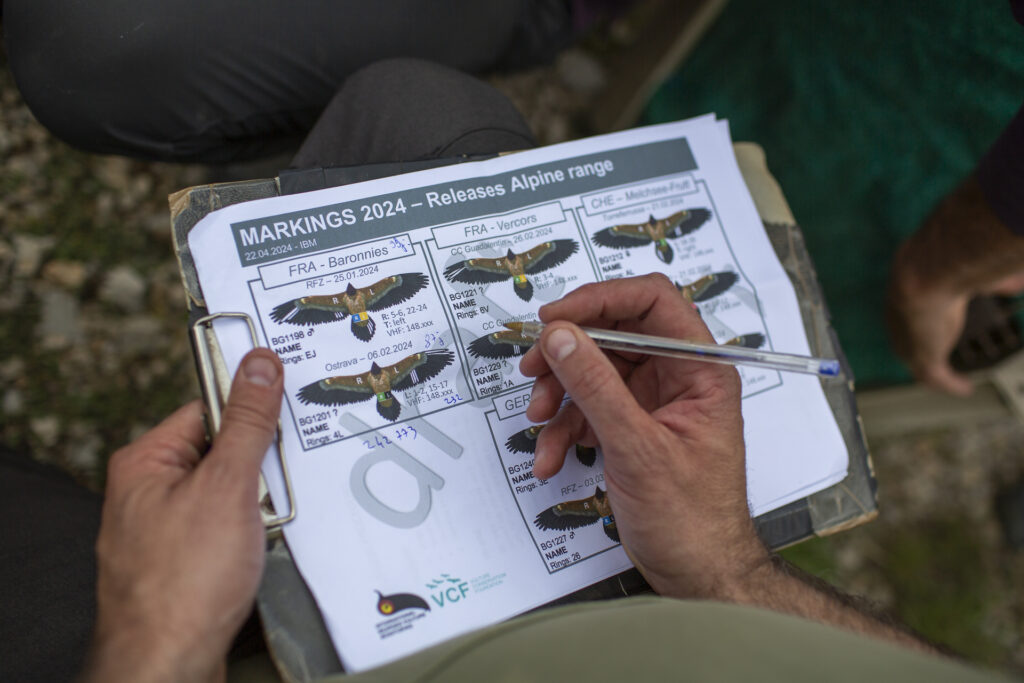
The power of the network
The European Rewilding Network, which celebrated its tenth anniversary in October 2023, has become one of the most important tools for scaling up rewilding in Europe. It brings Europe’s rewilding initiatives closer together, empowering each one with the knowledge, skills, and support to be more successful in their own endeavours, and driving the burgeoning European rewilding movement forwards.
